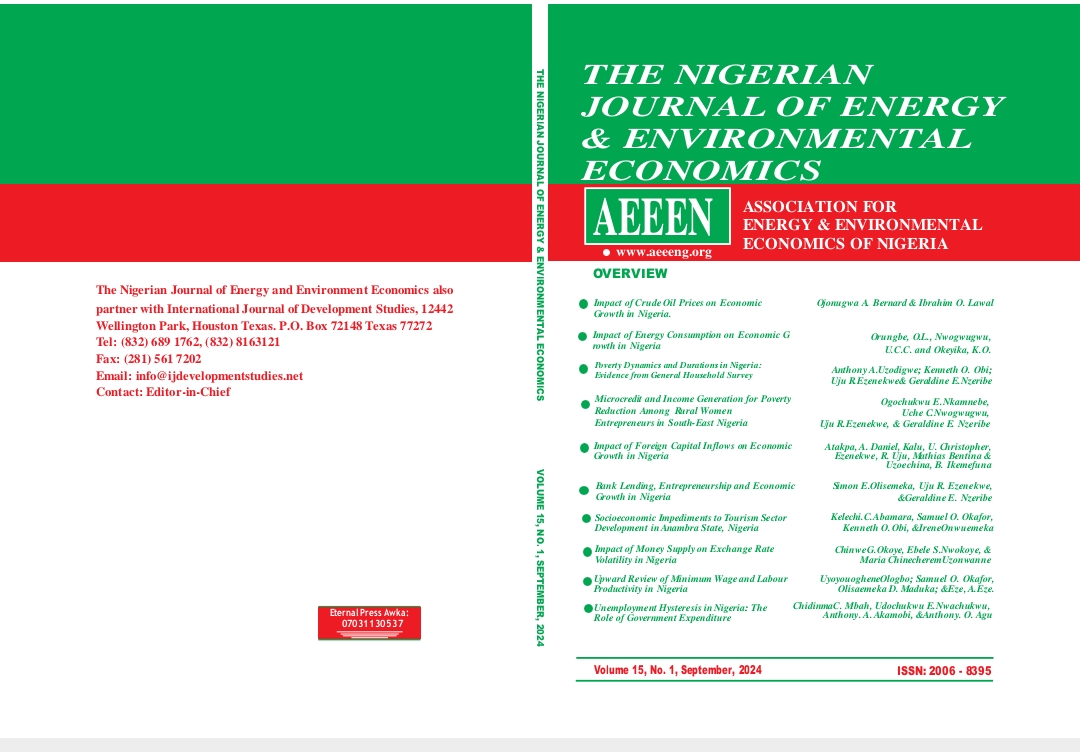UPWARD REVIEW OF MINIMUM WAGE AND LABOUR PRODUCTIVITY IN NIGERIA
Keywords:
Minimum wage, Labour Productivity, GMMAbstract
The Nigerian labour market has shown profound features in recent times, including general decline in national productivity. This trend has continued to generate several dissenting debates, one of which is the implication of minimum wage legislation for the labour market. In contributing to this debate, this study examined the impact of minimum wage on labour productivity. Given that there is dearth of empirical evidence on the impact of minimum wage on labour productivity, this study utilized time series data spanning from 1990 to 2020 to analyse the impact. To account for potential endogeneity in the estimation environment, the study
utilized generalized method of moment (GMM) for estimating the hypothesized models. The results indicate that minimum wage legislation engenders productivity gain both in the year of announcement and in the long run. It further reveals that oil revenue, technological advancement, real gross domestic product and firms’ profit are positively related to labour productivity. However, capital stock exerts negative effect on labour productivity. Based on the findings, the study recommends that minimum wage legislation could be used as a tool for reducing wage dispersion and to channel productivity gains into higher wages.


